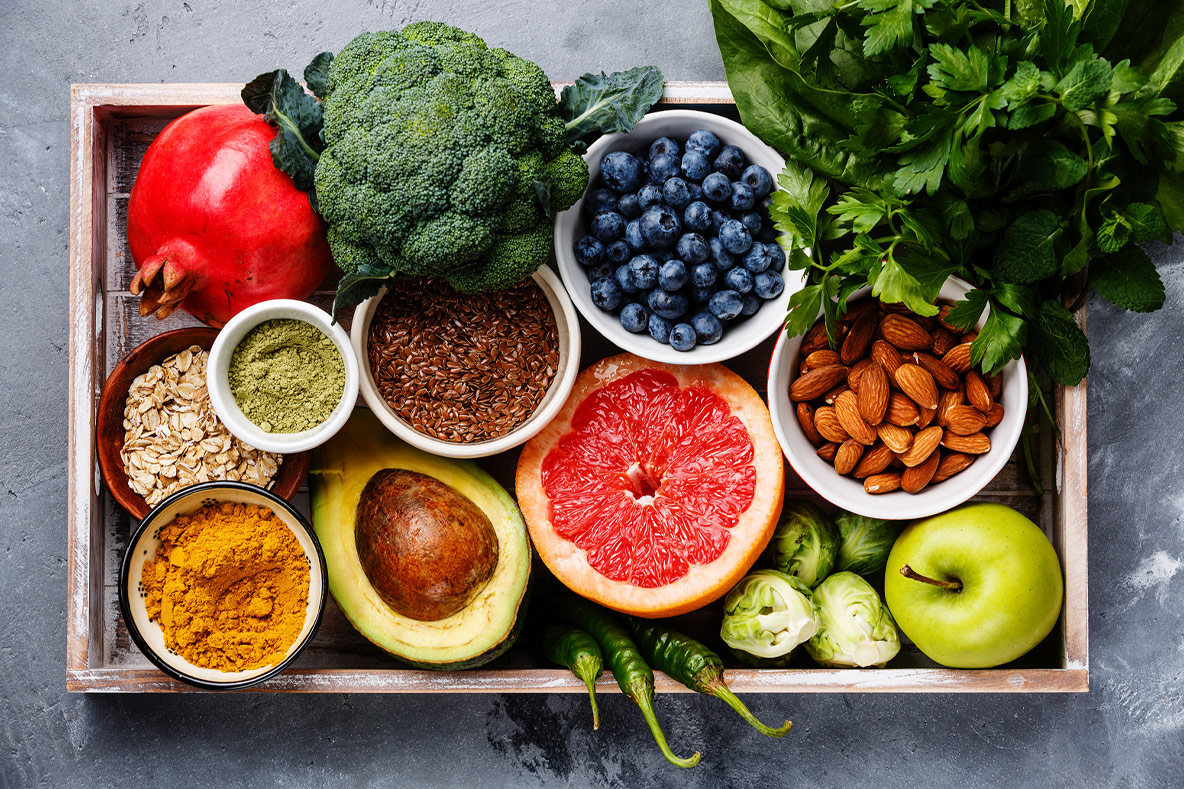It’s estimated that up to 20 million Americans suffer from thyroid disease (1). What’s even crazier is that up to 60% of cases go undetected (2)! Chronic stress, leaky gut, autoimmunity, and even the foods you eat can play a role in thyroid health. Today, we’re focusing on the best and worst foods for Hashimoto’s Thyroiditis.
If you’re struggling to get results with thyroid conditions, focusing on a diet for Hashimoto’s may help make a difference. In this article, you’ll discover foods to ditch and foods to incorporate (including how to prepare them) to strengthen and support your thyroid.
What is Hashimoto’s?
Hashimoto’s thyroid disease, also known as Hypothyroidism, is a type of thyroid condition that occurs when your thyroid is under-active, thus unable to convert the inactive thyroid hormone into an active thyroid hormone that your body can use.
Hypothyroid symptoms include extreme fatigue, cold hands and feet, depression, brittle nails, constipation, weight gain, decreased libido, and goiter. While making a lifestyle change to reduce stress and improve adrenals are crucial to supporting thyroid health, consuming healthy foods is even more critical.
What Role Does Food Play in Thyroid Health
The gut plays a massive role in our health and especially in autoimmunity. According to Dr. Jockers, the hypothyroid cycle starts with the adrenals and ends with the gut. Here’s a little breakdown:
- Adrenals: increased levels of stress hormones suppress thyroid function
- Thyroid: a decrease in thyroid function slows liver detoxification
- Liver: when liver detoxification is sluggish, your body fails to flush out toxic waste and instead sends it to the gut, which causes a decline in gut function.
- Gut: with a decrease in proper gut function, inflammation occurs and sometimes results in leaky gut. Leaky gut means that food particles and other toxic waste can lead through the gut lining and into the bloodstream. Gut inflammation will then trigger the stress response in the adrenals causing the cycle to start all over again.
(2)
The key here is to help build up the gut lining with supportive foods so that we can decrease inflammation and increase adrenal, thyroid, and liver function.
The Worst Foods for Healthy Thyroid Function
The gut plays a huge role when it comes to autoimmune conditions, and it’s no different when we’re talking about the thyroid and Hashimoto’s thyroid disease. Trans fats, gluten, conventional dairy, and ultra-processed foods compromise the gut lining. When the gut lining is compromised, undigested food particles pass into the blood stream resulting in an autoimmune reaction. While everyone should avoid these foods to optimize their health, it’s pertinent for those suffering from hypothyroid.
Goitrogenic Foods
If you’re familiar with thyroid conditions, you’ve probably heard of Goitrogenic foods and have been told to stay away from them.
The term “goitrogenic” refers to something that causes swelling of the thyroid gland or causes “goiter.” Goitrogens are substances that interfere with the thyroid’s iodine uptake. If the thyroid can’t get enough iodine, then it produces insufficient levels of T4 and T3 hormones.
The hypothalamus will then sense low T4 levels and release a hormone that triggers the pituitary gland to produce TSH. The thyroid will react to TSH by creating more hormones, but if it can’t keep up with demand, it will grow bigger, hence a goiter. Supplementing with iodine alone will not help this problem. That’s why we need to get it from healing food sources and avoid ones that suppress uptake.
Goitrogenic foods that should be avoided in a diet for Hashimoto’s. These foods include broccoli, cauliflower, Brussel sprouts, cabbage, bok choy, Chinese cabbage, kale, canola, horseradish, and choy sum. If you absolutely love these foods, try eating them in moderation and always steam or boil to reduce goitrogens and limit to one cooked serving a day, so your condition doesn’t worsen (1).
The Best Foods for Healthy Thyroid Function
Boost iodine through natural sources like seaweed, kelp, iodized salt, cod, shrimp, and tuna! Ensure you get proper selenium intake by consuming foods high in selenium. These include eggs, turkey, chicken, brazil nuts, cremini and shiitake mushrooms, liver, and lamb.
To support a healthy gut lining, add wild-caught fish, bone broth, coconut oil, low sugar fruits (berries!), and fermented foods to your diet.
Now that you have the best and worst foods list for Hashimoto’s thyroid health, what changes will you make in your life and diet? Are you obsessed with cruciferous vegetables and feel totally down by the suggestion to limit them? You’re not alone; let us know in the comments.
To learn more about how to naturally support Hashimoto’s and Hypothyroid tune into our podcast, The Natural Modern Family and listen to the episode: Natural Support for Hypothyroidism. And of course, check out our articles Essential Oils for Thyroid Support and The Best Essential Oils for Hypothyroid.
Cites





READ the Latest
Health Habits
Longevity
Health Habits
Health Habits
One Comment